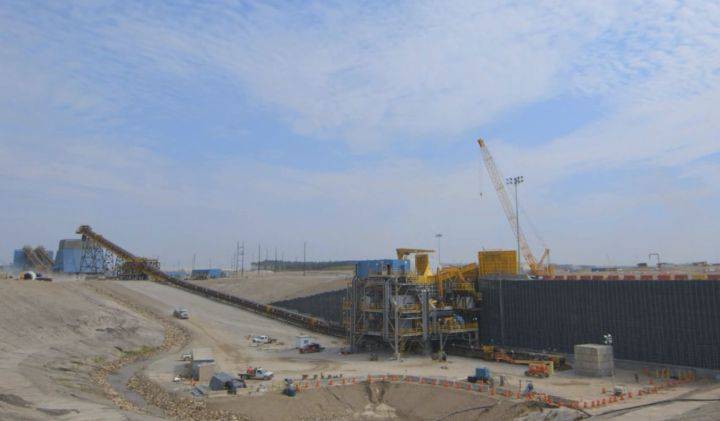The partial shutdown of a diluent supply pipeline following a spill near Fort McMurray has halted production at the Kearl oilsands mining operation in northern Alberta, operator Imperial Oil Ltd. said Wednesday.

Analysts say the anticipated withdrawal of thousands of barrels of bitumen per day from the market is already affecting crude prices.
The facilities are to be kept ready to be restarted as soon as the pipeline is back in service and diluent supply is restored, Calgary-based Imperial said in a news release, adding it is looking at other unspecified options.
An Imperial spokesman declined to say how much production is being sidelined or offer other detail, but National Bank analyst Travis Wood said in a report Kearl was expected to produce an average of 157,000 barrels per day of bitumen in the current quarter.
“While this new development will be negative towards our short-term estimates, timing is uncertain, and we will adjust volumes accordingly once we have more information,” said Wood.
Kearl is 29 per cent owned by Imperial’s American parent, Exxon Mobil Corp.

Get daily National news
Operator Inter Pipeline Ltd. shut down a segment of its two-legged Polaris system on Saturday following a leak detected on Crown recreational land just east of the Fort McMurray airport in northern Alberta.
The pipeline system is used to move light petroleum such as condensate from Edmonton to the region where it is used by oilsands companies to dilute heavy bitumen so it will flow in a pipeline to market.
In a report, analysts at Tudor Pickering Holt & Co. warned the shutdown, if prolonged, could potentially affect the operations of oilsands projects operated by Imperial, Husky Energy Inc., Cenovus Energy Inc. and Canadian Natural Resources Ltd.
In an brief email, Husky spokeswoman Kim Guttormson confirmed the company is affected but offered few details.
“Re: Polaris, we are being impacted by the shutdown, however we have other options to help mitigate the effects,” she said.
A spokesman for Canadian Natural said its operations are not currently affected.
Husky’s Sunrise thermal oilsands facility, which it owns with partner BP, requires about 21,000 bpd of diluent to transport daily output of about 45,000 barrels of bitumen, said Eight Capital analyst Phil Skolnick in a note to investors early Wednesday.
He added Kearl requires about 50,000 bpd of diluent when it is producing at its capacity of about 235,000 bpd.
The anticipated loss of production has already caused the price discount for bitumen-blend Western Canadian Select crude to narrow compared with U.S. benchmark crude, Skolnick said.
In 2019, the Polaris system transported an average of about 238,000 bpd of diluent, Inter Pipeline says on its website.
A spokeswoman said Tuesday she couldn’t say how much diluent is still being delivered or when the line is expected to be back in service.







Comments